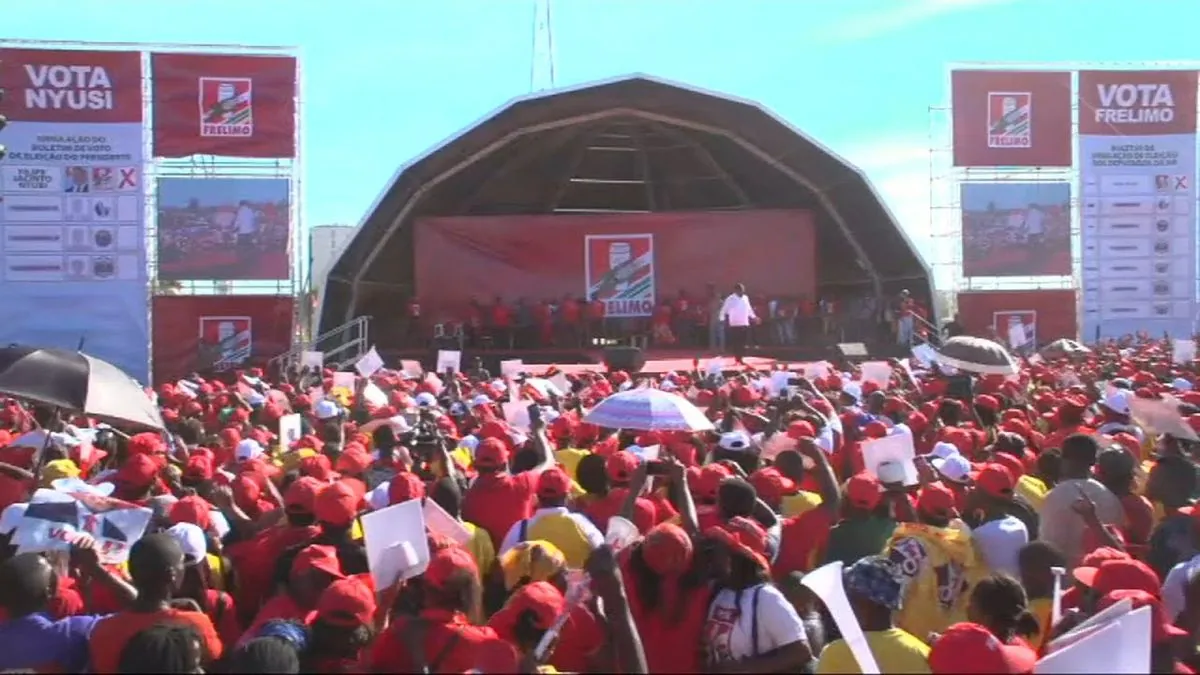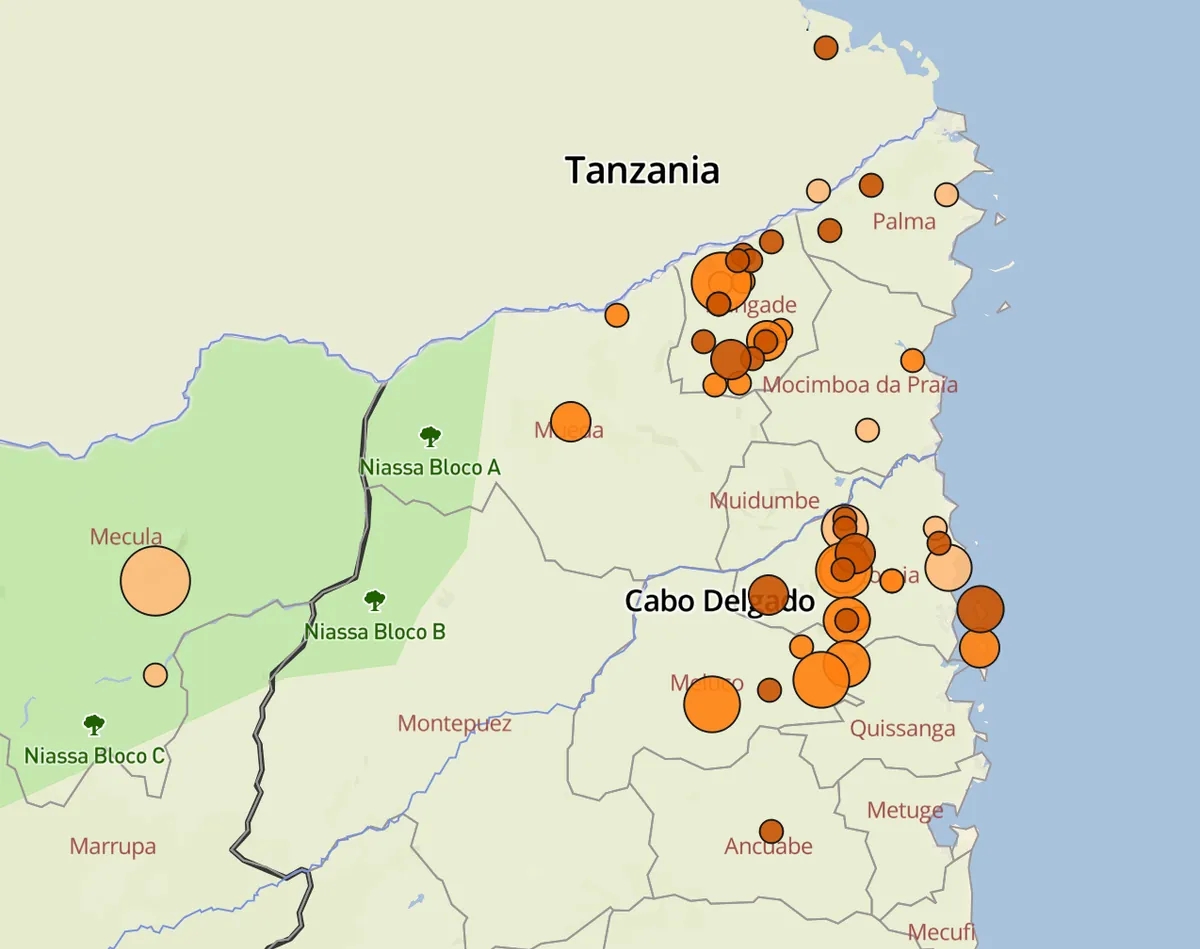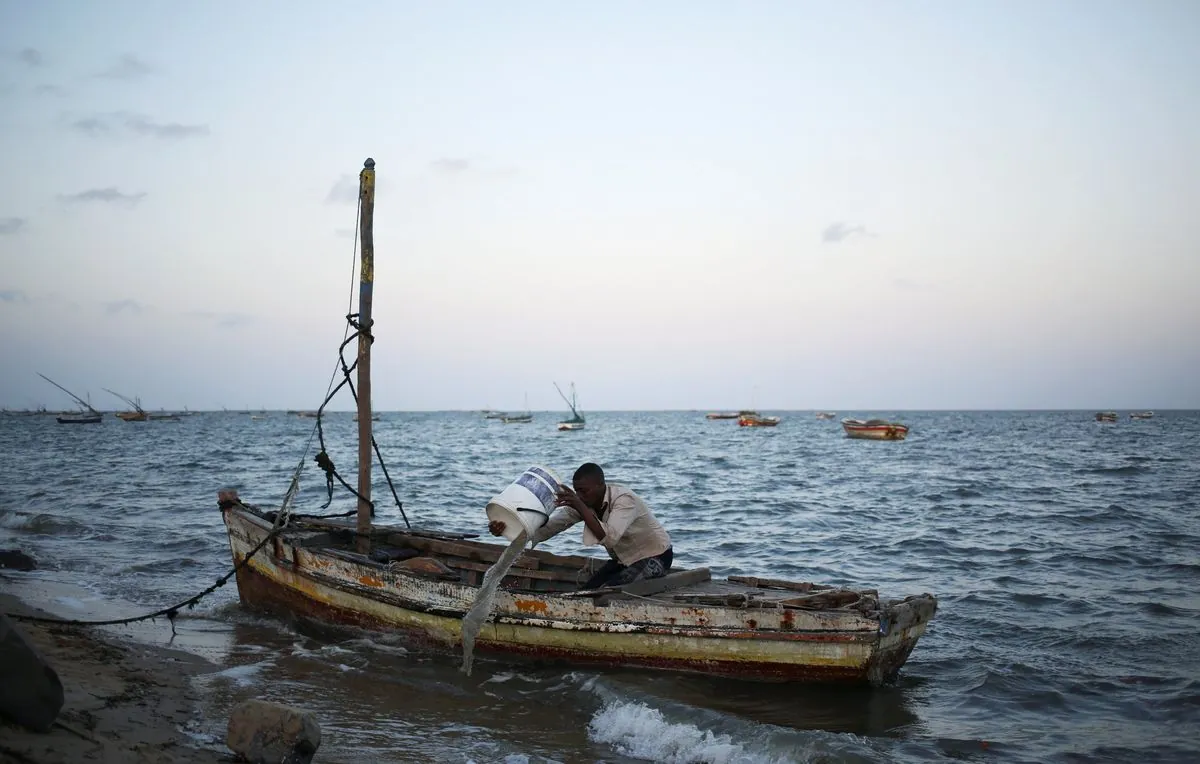Mozambique's Elections: Frelimo's Grip Amid Insurgency and Economic Challenges
Mozambique prepares for elections as ruling party Frelimo faces ongoing insurgency and economic hurdles. Voters to decide amid stalled gas projects and climate threats in resource-rich nation.

As Mozambique approaches its presidential and legislative elections on October 9, 2024, the southeast African nation faces a complex array of challenges. The ruling Frelimo party, which has held power since Mozambique's independence from Portugal in 1975, is expected to maintain its half-century grip on the country's leadership.
Daniel Chapo, a former radio announcer and law lecturer, is the frontrunner to succeed Filipe Nyusi as president. This transition occurs against a backdrop of ongoing security concerns, economic hurdles, and environmental threats.
The most pressing issue confronting Mozambique is the Islamist insurgency in the northern province of Cabo Delgado, which began in 2017. This conflict has resulted in thousands of civilian casualties and displaced hundreds of thousands of people. The insurgency has also disrupted multi-billion-dollar energy projects in the region, which houses one of Africa's largest gas fields.

Despite efforts by government forces, supported by regional troops and Rwanda, to contain the insurgency, there has been a resurgence of deadly attacks since the beginning of the year. This ongoing instability has had significant implications for Mozambique's ambitious liquefied natural gas (LNG) projects.
Prior to the escalation of violence, gas projects valued at over $50 billion were slated for development, with the potential to transform Mozambique into a major LNG producer. However, security concerns have led to delays and suspensions. French energy giant TotalEnergies halted work on its $20 billion LNG project in 2021, declaring force majeure following an attack on the town of Palma. Similarly, Exxon Mobil and Eni have postponed their project, with a final investment decision now expected by the end of 2025.
The country is still grappling with the aftermath of the "tuna bond" scandal, which involved $1.5 billion in loans to state-run firms, partially funded by Credit Suisse. The misappropriation of these funds led to a temporary suspension of international aid, triggering a currency collapse and debt default. While a settlement was reached in 2023, the scandal has left a lasting impact on Mozambique's financial reputation and Frelimo's image.
Mozambique's vulnerability to climate shocks adds another layer of complexity to its challenges. As one of the world's most disaster-prone countries, it faces recurring droughts, cyclones, and floods. An El Niño-induced drought has recently affected 1.8 million people in central and southern Mozambique, exacerbating food insecurity.
"Around 1.8 million people have been affected by the drought in central and southern parts of the country."
The country's history of conflict looms large over the upcoming elections. The 16-year civil war between Frelimo and Renamo, the main opposition party, ended in 1992 but has left a legacy of periodic violence around elections. The Maputo Accord for Peace and National Reconciliation, signed in 2019, aimed to bring "definitive peace" to the nation. Since then, over 5,000 former combatants have been reintegrated into society.
As Mozambicans prepare to cast their votes, they do so in a country rich in natural resources and potential, yet beset by significant challenges. The nation boasts a 2,470 km coastline along the Indian Ocean and is home to the Cahora Bassa Dam, one of Africa's largest hydroelectric projects. Mozambique's economy, while showing promise with one of the highest growth rates in Africa over the past two decades, remains largely agricultural, with about 80% of the population engaged in farming.
The outcome of these elections will be crucial in determining how Mozambique addresses its security concerns, harnesses its natural resources, and navigates the complex interplay of economic development and environmental sustainability in the years to come.



































